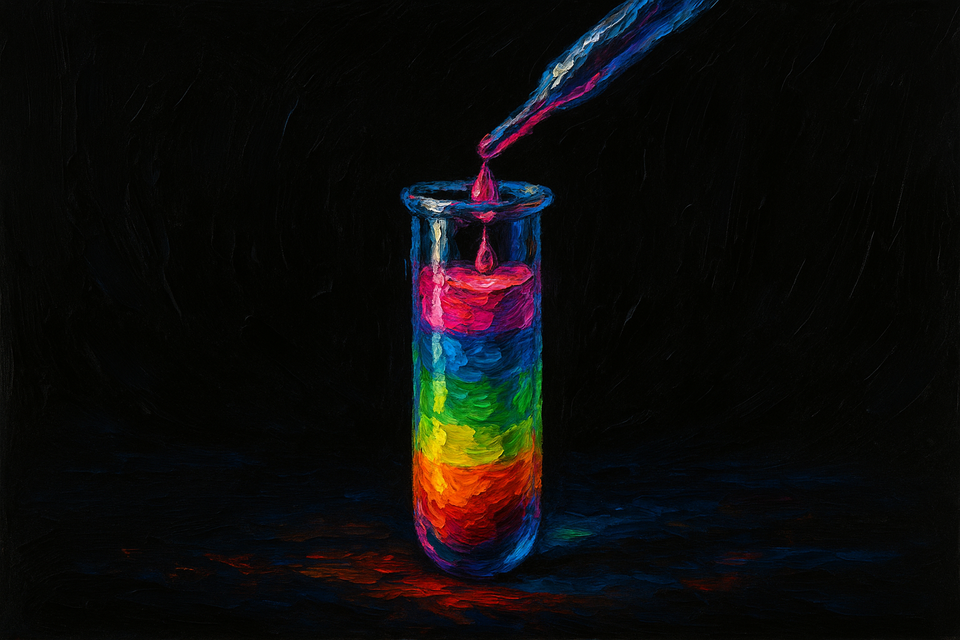Are you winning?

By the end of my PhD, I was somewhat disillusioned by the way scientific research worked and decided to pick a field that could open up a (small) door to industry, if I ever decided to take that route one day. (I was very naive about that, but that is a story for another time.)
After some digging, I could find two labs focusing on the relatively narrow question I wanted to pursue for my postdoc. I interviewed for both labs.
Competition
In the first lab, I met a stressed out PI with strong requirements. During the interview, this PI kept checking their email from their watch, in between the questions they were asking me. Perhaps some people are really good at multitasking. The PhD student I talked to mentioned they had not taken more than a week of vacation per year since they started; and each time had to convince the PI that they really needed this time off/away. There was quite a bit of tension in the lab (or at least it felt that way). I left that interview with the vague sense that I was already suffocating under a crazy amount of work and pressure from the PI.
Recently, I came across a video on YouTube where a researcher explains the “difference” between undergraduate studies and a PhD:
“At the undergraduate level you have local competition; so, to be the best in your class, you just have to beat the other 30 or so (or 100) people in your class. At the PhD level, you're competing globally; you're competing against all the other people in your field.” Source
This reminded me of the point of view of the first lab. He said this like it was inspiring or motivating. Like scientific research was a sport. And in that case, someone winning means the rest of us are supposed to lose…
This lab was competing with others.
Collaboration
In the second lab, I met a relaxed PI who was interested in getting to know me. We discussed the potential projects I could take on and had a pleasant discussion. The PhD student in the lab explained to me that each lab in the department shares their research weekly with others in an almost informal setting, open to receive feedback and think together on each project. There was zero visible hierarchy in the way people spoke to each other. Not just in the lab but in the whole department. Every idea seemed to matter in exactly the same way.
This was the same research field. They had the same grant deadlines. But the day-to-day reality was completely different (and the way I see it, it was even opposite).
This lab was collaborating with others.
Competing to collaborate
It’s not just individual labs and there is definitely a cultural side to it. Different departments, institutions, and countries show different norms around hierarchy, openness, authorship, and mentorship.
Due to the way research is done and due to its level of priority (read: low), we unfortunately do have to compete. There are limited funds, limited positions. Someone gets the grant and someone else does not. The rejection rates are brutal.
Academia has never been a true and clean meritocracy. But the idea that science is best done in isolation in some PI-driven high-pressure bunker where only the most hyperproductive people survive feels outdated and it is at the same time weirdly persistent.
Competing for the grants does not mean we have to compete against others in our field. If we have a common goal to help solve the big research questions, why would we be “disappointed” if someone else makes the discoveries?
Contributions to a field can only be stronger if we collaborate, and the more we (collectively) know about a specific subject the more complex it becomes to solve alone.
We have to compete for the grants but in the end, we do it to collaboratively make the field better. We build success and knowledge together. We work together, we are not against each other.
The choice
This was a choice between two different research cultures.
I will never accept that we should be competing for the discoveries and the findings. And if we are, we got it all wrong. So, I chose the second lab. I don’t know if it was a good “career” decision. But it fit best with the kind of scientist I wanted to be.
In the end, both labs published. Both got competitive grants. Their students though, did not have the same experience.
So, think about it…
Are you winning?
Or are you contributing to something bigger than you?

Comments ()